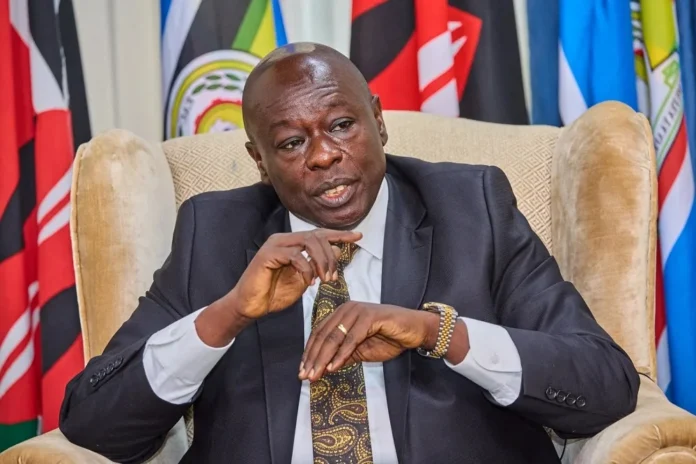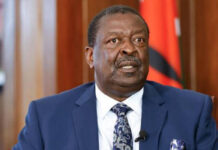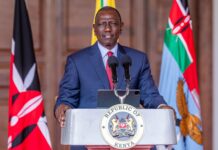Written by Were Kelly
Former Deputy President Rigathi Gachagua has asserted that his personal intervention was solely responsible for ensuring Justin Muturi retained his position as Cabinet Secretary for Public Service during the tumultuous cabinet reshuffle that followed Kenya’s widespread Gen-Z protests in 2024. In a speech delivered in Nairobi on Friday, 7 November 2025, Gachagua narrated a tense confrontation with President William Ruto, claiming he leveraged his position to reinstate Muturi after discovering the seasoned official had been dropped from a list of new appointments. The recounting, shared in a video by Kenyans.co.ke the following day, offers a rare insight into the internal negotiations within the Kenya Kwanza administration during a period of profound political crisis.
The context for Gachagua’s claim stems from the July 2024 protests, which began in opposition to the Finance Bill but rapidly expanded into a broad youth-led movement demanding governance reforms, including a complete overhaul of the cabinet. President Ruto dissolved his entire cabinet on 11 July 2024 in response to the pressure. By mid-August, he began announcing a new cabinet in batches. According to Gachagua’s narrative, it was while reviewing the list for the third batch of appointments, due for announcement on 16 August 2024, that he noticed a critical omission. “I looked at it and found that JB had been dropped,” Gachagua said, referring to Justin Muturi by his initials. He described his subsequent refusal to accompany President Ruto for the public announcement, stating, “I refused to accompany the President until JB was reinstated.”
Gachagua framed his insistence as a matter of principle, rooted in a commitment to regional balance and rewarding competence. He praised Muturi, who hails from Embu, as a capable official whose retention was necessary for equity within the government. This move, he suggested, was a corrective to what he perceived as favouritism towards allies from the Orange Democratic Movement (ODM) at the expense of other coalition partners. The public revelation of this behind-the-scenes struggle has ignited fresh debate about President Ruto’s leadership and decision-making. On social media, user @KabansoraKe echoed a sentiment heard from Gachagua’s allies, warning of Ruto’s unreliability and citing the former deputy president’s eventual inability to protect other dismissed allies as evidence of the administration’s shifting loyalties.
The timing of Gachagua’s speech is highly significant, coming more than a year after his own political fortunes dramatically reversed. He was impeached as deputy president in October 2024 and formally dismissed from office in March 2025. His detailed account of a period when he still held leverage is widely interpreted as a political manoeuvre aimed at repositioning himself, criticising his former boss, and appealing to new constituencies. Analysts note that Gachagua has recently been actively courting Gen-Z and millennial voters, urging them to take up leadership roles: a clear attempt to align himself with the very protest movement that triggered the cabinet crisis he describes.
As Kenya’s political landscape begins to recalibrate ahead of the next electoral cycle, Gachagua’s narrative serves as a potent reminder of the fragile alliances that underpin its governance. The story of Muturi’s reappointment, as told by the former deputy president, not only reignites debates about presidential judgment and internal Kenya Kwanza dynamics but also signals Gachagua’s intention to remain a central and vocal figure in the nation’s ongoing political discourse, using past events to shape future ba



















